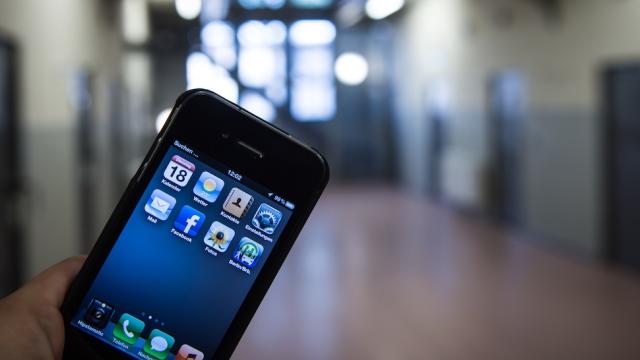As the world of cybersecurity becomes increasingly volatile, more advanced solutions to problems like encryption couldn’t come soon enough. This is why everybody’s excited about a team of British physicists’ testing a method that would put quantum cryptology in everybody’s pocket.
Quantum cryptology is a slightly complicated but ultimately game-changing thing. Put simply, it’s practically uncrackable, making it the holy grail of encryption techniques. Whereas traditional methods of cryptology depend on mathematical formulas — which can be solved — to encrypt data, quantum cryptology depends on the laws of physics — which cannot be broken — to do so. Up until now, however, quantum cryptology has required serious hardware that’s typically only found in quantum optics labs.
Before getting into the new technique, it would be helpful to review the basics of quantum cryptology. Imagine Alice and Bob want to communicate with each other without a third party, Eve, listening in. Traditionally, they would have public and private keys that are very big prime numbers, creating a maths problem that would take Eve millions of years to solve. As computers get better, though, that maths problem becomes easier. This is where quantum cryptology comes into play. Instead of a series of numbers, Alice would send the key to Bob as a series of photons. Based on Heisenberg’s Uncertainty Principle, Eve wouldn’t be able to observe the photons without changing or destroying them.
Again, the transmission and receiving of these photons has always required some serious gear. But a team of physicists from the University of Bristol have developed a new approach that simplifies the equation. The MIT Technology Review explains:
In the new technique, only one of the parties, Alice say, needs to have the quantum optics gear such as a source of photons and so on. Alice creates the photons and then sends them down an ordinary optical fibre to Bob, the other party.
Bob, merely modifies the photons to encode them with information before sending them back to Alice. This dramatically simplifies the equipment Bob requires, allowing it to fit in a handheld device.
Imagine the near future when internet companies use quantum optics equipment to beam secure messages to our iPhones, and we can respond from the palms of our hands. This is probably less important for something like email and more important for the idea of mobile voting. In fact, one of the first uses of quantum cryptology was for elections in Geneva, Switzerland.
While it’s not completely infallible — people are always prone to making mistakes during the encryption process — quantum cryptology is currently the most secure way we have to transmit information. And if you listen to folks like Homeland Security chief Janet Napolitano, cybersecurity has never been a more pressing priority. So everybody wins with these improved methods of encryption. Everybody except Eve and her hacker friends, of course. [Technology Review]
